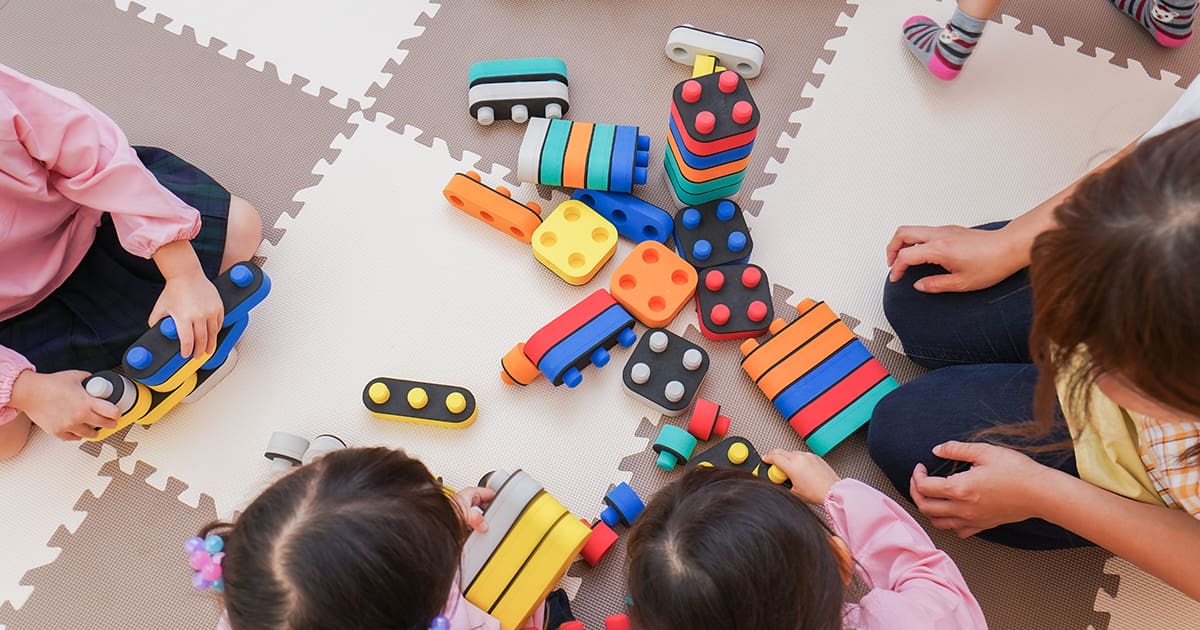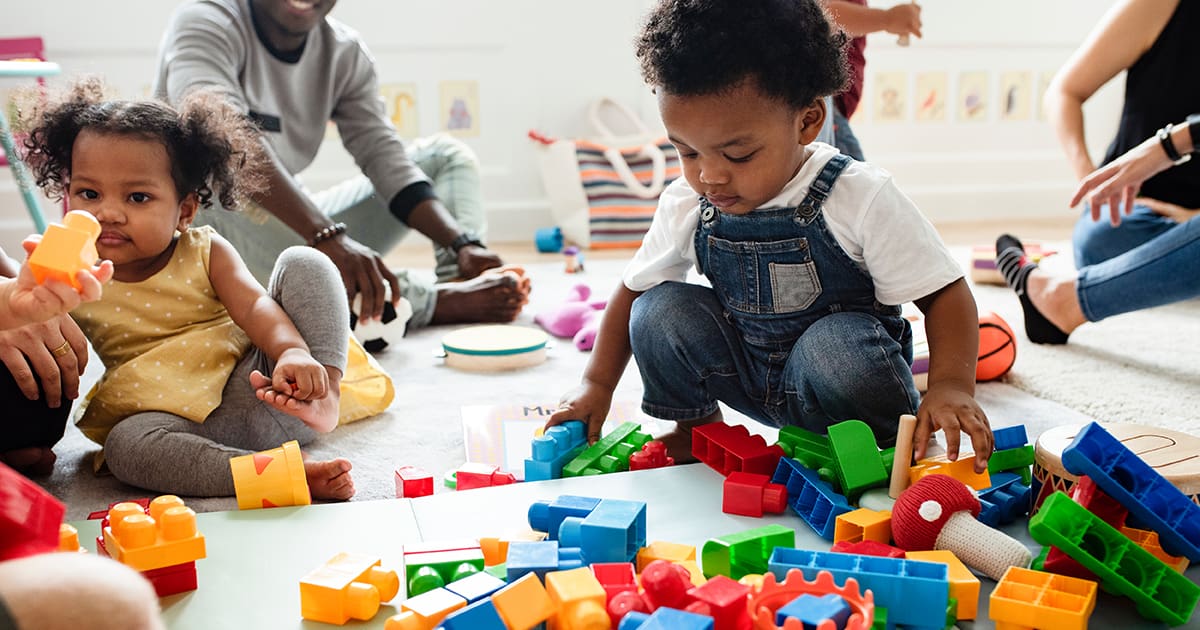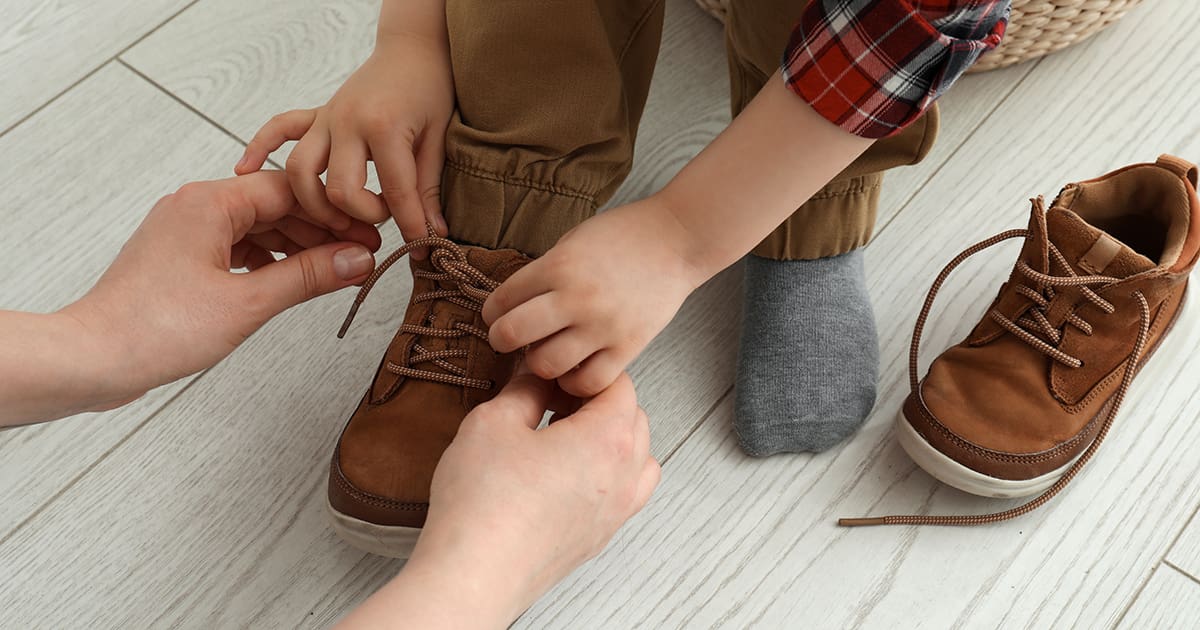Share this Post

Every child deserves a strong foundation for learning, socialization, and independence. For children who need extra support in their early years, a therapeutic preschool program provides structured learning experiences tailored to their unique developmental needs. These programs blend traditional early childhood education with specialized therapies, ensuring that children receive the comprehensive support they need to grow, learn, and thrive.
At CST Academy, our therapeutic preschool program helps children develop essential skills in communication, motor development, social interaction, self-regulation, and independence. By integrating evidence-based strategies into a nurturing, play-based environment, we ensure that every child has the tools they need for future success.
What is a Therapeutic Preschool?
A therapeutic preschool is designed for children who may have developmental delays, speech or language challenges, sensory processing difficulties, or social-emotional needs. Unlike a traditional preschool, a therapeutic preschool incorporates specialized therapies such as speech therapy, occupational therapy, and applied behavior analysis (ABA) therapy into the daily curriculum.
Children receive individualized support while participating in structured play, hands-on learning activities, and peer interactions—all designed to build the skills they need to transition into a traditional school setting or continue on their unique learning path.
Key Skills Taught in a Therapeutic Preschool Program
1. Communication and Language Development
One of the most essential skills children learn in a therapeutic preschool program is effective communication. Some children may have limited verbal skills, difficulty expressing their thoughts, or challenges understanding spoken language. Through speech therapy and language-enriched activities, children work on:
- Expanding their vocabulary and forming sentences
- Following simple and multi-step directions
- Using expressive and receptive language appropriately
- Engaging in back-and-forth conversations
- Learning alternative communication methods such as picture exchange or speech-generating devices
Strong communication skills help children express their needs, interact with others, and build meaningful relationships.
2. Social and Emotional Skills
Social interaction is a critical part of early childhood development, but some children may struggle with understanding social cues, engaging in play, or managing emotions. In a therapeutic preschool, children receive structured support in social skills through guided play and therapist-led activities.
Some of the key social and emotional skills taught include:
- Turn-taking and sharing during playtime
- Recognizing and expressing emotions in appropriate ways
- Understanding social cues such as facial expressions and body language
- Participating in group activities and cooperative play
- Building friendships and engaging in positive peer interactions
Through structured play-based learning, children develop the social confidence they need to successfully navigate interactions with peers and adults.
3. Fine and Gross Motor Skills
Physical development is another key focus in therapeutic preschool programs. Children practice both fine motor skills (small muscle movements) and gross motor skills (large muscle movements) to enhance coordination and independence.
Fine Motor Skills
Fine motor skills are essential for daily activities such as writing, eating, and self-care. Children work on:
- Grasping and manipulating objects
- Using scissors, crayons, and building blocks
- Strengthening hand muscles for writing and self-help tasks
- Improving eye-hand coordination through puzzles and bead threading
Gross Motor Skills
Gross motor activities help children develop balance, strength, and body coordination. Children engage in:
- Climbing, jumping, and balancing exercises
- Running and playing interactive movement games
- Strengthening core muscles through obstacle courses and yoga
- Practicing coordinated movement activities such as dancing or tossing a ball
By developing strong motor skills, children gain the physical confidence needed for both learning and play.
4. Sensory Processing and Self-Regulation
Many children in therapeutic preschool programs experience sensory processing challenges, making it difficult to process and respond to sensory input like sound, touch, movement, or visual stimuli. Occupational therapists work with children to help them regulate their responses and participate comfortably in their environment.
Sensory-based activities help children:
- Adapt to different textures, sounds, and movement experiences
- Develop coping strategies for overstimulation
- Improve body awareness and coordination
- Engage in calming techniques such as deep pressure exercises, breathing strategies, or movement breaks
By learning self-regulation techniques, children can better focus on learning and socializing in a comfortable way.
5. Self-Help and Independent Living Skills
A major goal of any therapeutic preschool program is to foster independence in children. Learning to complete self-help tasks builds confidence and prepares children for daily routines at home and in school.
Children work on:
- Feeding skills – Using utensils, opening snack containers, and trying new foods
- Dressing and hygiene – Zipping jackets, buttoning shirts, washing hands, and using the restroom independently
- Following routines – Transitioning between activities, cleaning up after play, and managing daily schedules
By encouraging independence, children gain the skills and confidence they need for a smooth transition into a traditional school setting.
6. Cognitive and Early Academic Skills
A therapeutic preschool program also builds foundational cognitive and academic skills to support school readiness. These skills are taught through interactive, play-based activities tailored to each child’s abilities.
Children develop:
- Early literacy skills – Recognizing letters, listening to stories, and identifying sounds
- Basic math concepts – Counting, sorting, and recognizing patterns
- Problem-solving abilities – Completing puzzles, following sequences, and using reasoning skills
- Memory and attention skills – Practicing focus and following multi-step instructions
By engaging in hands-on learning, children gain confidence in their ability to explore and learn new concepts.
Why a Therapeutic Preschool is the Best Choice for Children Who Need Extra Support
A therapeutic preschool program offers a unique combination of education, therapy, and social development in a setting designed specifically for children who require additional support. The benefits of enrolling in a therapeutic preschool include:
- Early intervention leads to long-term success – Research shows that children who receive early support in communication, motor skills, and social development are better prepared for kindergarten and beyond.
- Individualized learning plans – Every child has a customized plan designed by professionals to address their unique developmental needs.
- Integration of multiple therapies – Children receive speech therapy, occupational therapy, and behavioral support as part of their daily routine.
- A structured but nurturing environment – A therapeutic preschool provides predictability and routine, helping children feel comfortable and secure.
- Play-based learning encourages engagement – By making therapy fun, children are more likely to participate actively and build skills naturally.
Is a Therapeutic Preschool Right for Your Child?
If your child needs extra support in communication, motor skills, social development, or independence, a therapeutic preschool program can provide the structured guidance they need to thrive in school and daily life.
At CST Academy, we are committed to providing high-quality, research-based therapies in a nurturing preschool environment. Our dedicated team of educators, therapists, and specialists work together to help each child build the skills they need for a bright future.
If you’re interested in learning more about how a therapeutic preschool program can benefit your child, contact CST Academy today. We are here to support your child’s growth and success every step of the way.
Discover Our Pediatric Therapy & Autism Care
ABA Therapy
Support for children with autism.
Diagnostic Evaluation
Expert assessments to identify child needs.
Pediatric Therapy Services
Speech, Occupational, Feeding, and Physical Therapy.
Therapeutic Preschool & Kindergarten
A classroom environment designed for early learners with unique needs.

Find the Best Care for Your Child




